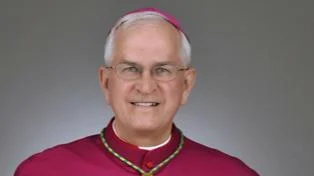
Reverend Joseph E. Kurtz, D.D. Bishop | Archdiocese of Louisville
As the new school year begins, parents are busy ensuring their children have what they need to succeed as they return to the classroom. Catholic parents, however, are asked to provide more than just standard school supplies, new clothes, and backpacks. They also provide an opportunity to pass on their Catholic faith, a year-round task considered essential to the Church’s mission of sharing the Good News.
Whether children in a Catholic home attend parish school, regional school, homeschool, or parish religious education programs, parents are viewed as the primary teachers of faith for their children. According to the 2020 edition of the “Directory for Catechesis,” “the Church is called to cooperate with parents … assisting them in their fulfillment of their educational mission to become above all the first catechists of their own children.”
The term “catechist” originates from the Greek word “katekhein,” meaning to resound or echo. Therefore, a catechist shares the Gospel of Jesus Christ through personal witness and by passing on church teachings. The directory warns against a "mentality of delegation," where parents relinquish their roles as formators and completely delegate that responsibility to the Church.
Many parents express feelings of inadequacy regarding their participation in their children's spiritual formation. Reasons vary; some may not fully believe in church teachings or struggle with their own Catholic identity. Others might lack knowledge about the faith or have little connection to a parish community. Despite these challenges, parents who believe—even minimally—can effectively model aspects of faith through daily examples.
Parents can intentionally plant seeds of faith by living out basic Gospel principles such as unconditional love, forgiveness, and caring for others. Simple actions like prayers before meals (at home, in the car, or at restaurants), bedtime Bible stories coupled with nighttime prayers, and displaying religious symbols in homes can create a sense of sacredness.
Engaging children in conversations about God’s ongoing creative activity during nature walks, fishing trips, or camping can also be beneficial. While every school year has a beginning and an end, a parent's role as catechist is continuous and never truly ends. In catechesis there is an expression that faith is “caught not taught,” indicating that even small examples of living faith can leave lifelong impacts on children. These children may then share what they have learned with future generations.
Art Turner is the director of the Office of Faith Formation.

 Alerts Sign-up
Alerts Sign-up